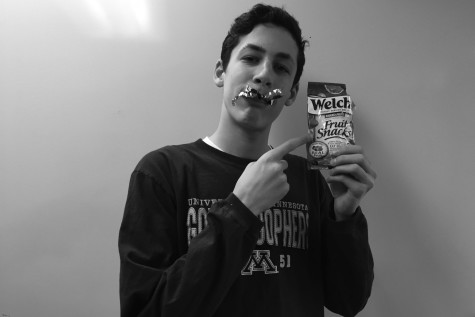The case for Assassins
One of the senior leaders defends the game
This spring will not be defined by flowers, showers, and fresh starts. Nary a buzzing bee or warm dewy morning will hold our attention. Gone is any fixation on the departure of snow or approaching summer months. No, this spring will be, and has been, about stalking, scheming, and paranoia. An invitation to get a meal after school now carries lethal connotations. Striking, no?
I am one of three game masters for the school’s 2016 Nerf assassins game, which this year has 54 teams and and 161 players from the junior and senior classes. Despite the fact that the game involves only Blake students, the administration has gone to comical lengths to distance themselves and the school from the game, sending out three separate emails to students, parents, and faculty, and doing everything short of banning the game (which they unfortunately cannot do, having boxed themselves into a bit of a conundrum with the “this game is in no way affiliated with the school, we are immune from lawsuits” assertion).
The efforts to dissuade students from playing the game is rooted in very rational and relevant logic, especially so this year. Most of us who are playing the game are aware of what happened last year in Lakeville, when two students playing a version of Nerf assassins at their school were killed in a car accident while chasing each other. It was a sobering moment for high school students around the country who play the game that can often incentivize going to drastic measures to kill your targets.
In the past, there have been instances with home break-ins, ultra-realistic weapons, and actual physical violence in the name of the game. In our school’s game last year, we had our own issues with ethics, as the game master (He Who Shall Not Be Named) kept all of the money that was supposed to go to the winner. The game died out before a winner was crowned, and the general sentiment was that the game was rigged and marred by bribery and favoritism.
This year, with understanding of the overarching concerns, we sought to alleviate the problems that plagued the game last year while also emphasizing safety above all.
Here is where my qualm with the administration comes to bear. We wrote an exhaustively detailed list of rules, in addition to a specific inventory of approved and restricted weapons. These were shared across the game’s social media accounts and made public on Google Docs. To this day, we receive suggestions and clarification questions from players, and I myself have taken dozens of calls and texts regarding safety rules.
The thing is, I directly shared all the materials for the game (including these rules) with my dean and welcomed the opportunity to work with the administration to make the game as safe as possible. For whatever reason, I have yet to have any such interaction or communication. In its efforts to distance itself from the game, the school has missed a sizeable opportunity to use their own resources and expertise to improve the game and make it safer.
I’m not suggesting they get directly involved in the gameplay or decision making, but it sure seems like opening up a line of dialogue between the leaders of the game and the school would be beneficial to both groups.
Now, to be fair, I did have one conversation with my dean where he expressed his own desire for safety and sensibility within the game. He also said that I should feel free to come to him with any questions or issues I was having with running the game. This was encouraging, and exactly the role I think the school should have.
Perhaps the school should take a page out of this playbook and try to have a limited, but active role in ensuring safety in the game, rather than just trying to keep themselves blameless should problems arise. There will always be tragedies in the world, but we must decide if the right response is to isolate ourselves from future blame, or improve and adapt to prevent it from happening again. I think the latter is the only option.
Here’s the kicker: the game has gone smashingly this year. On the game master side, we’ve stayed corruption free (depending on who you talk to) and dealt with disputes that, while not always satisfying to both sides, are unquestionably done with an eye to fairness. We recently introduced a new wrinkle to the game, “The Cornucopia,” where players convened in a Hunger Games-esque set up and battled within a free-for-all zone for in-game perks.
Students are bonding, both within their respective teams and as a part of the larger assassins community, whether it is through secret alliances, Twitter interactions, or braggadocious pictures after a kill. There have been stakeouts that stretch on for hours and culminate in thrilling duels.
Players know that they will be eliminated if they play in a moving vehicle because we’ve done it. Same goes for violations of personal property and other illegal acts related to the game. As such, cases of rule breaking and unsafe situations have been incredibly rare.
What it comes down to is this—we should prop up this game, rather than demonize it. It works as a conduit for grade and school unity better than any retreat or homeroom period does. It’s fun; it forces us to work and think creatively while adapting to uncontrollable situations, and it’s the the perfect way to cap off the school year. Never before has backstabbing and suspicion been so uplifting.

Hailing from the leeward side of Oahu, Will Kaback was a first year editor as a Junior. As the previous Sports Editor, he brings with him a lifelong devotion...




